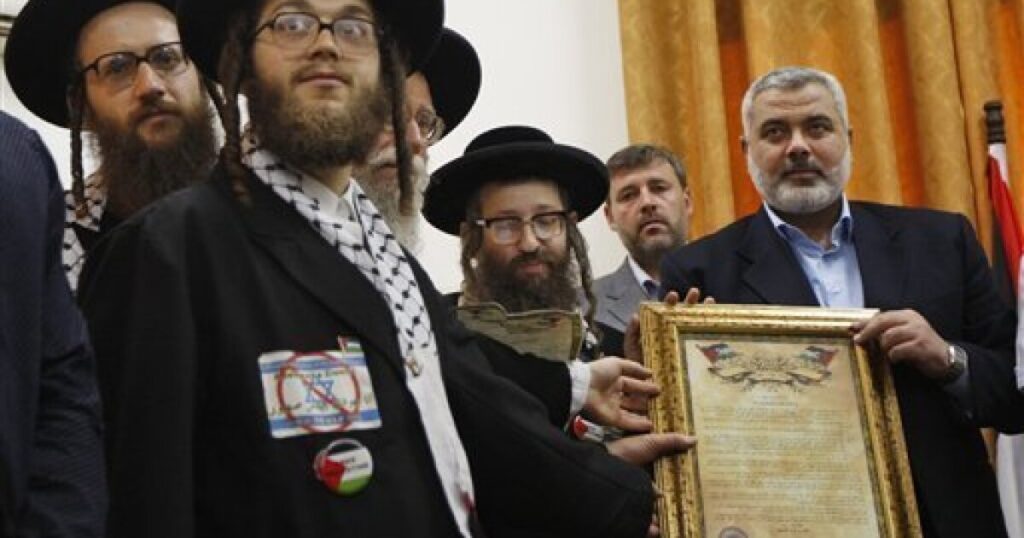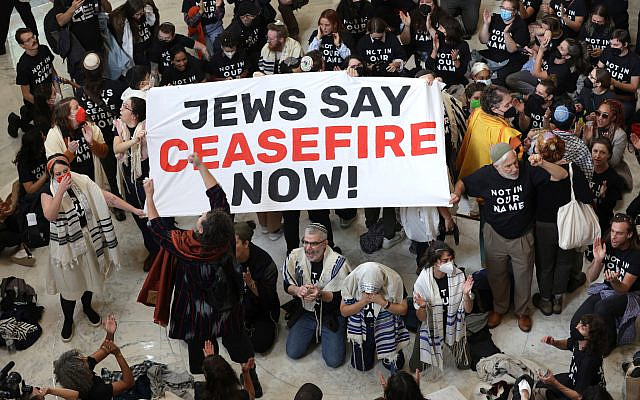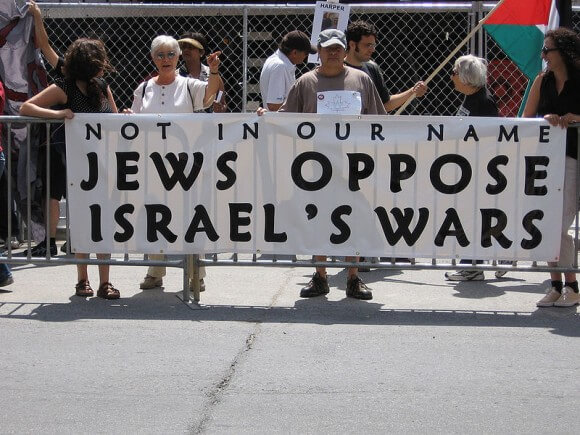‘Everything is infected in Gaza…Everybody has a wound infection and the stench of pus is everywhere.’
ed note–again, ladies and Gentile-men, as we have covered extensively here on this humble little informational endeavor, everything–EVERYTHING–that the followers of Torah Judah-ism have done throughout the 3,000+ years of their dark history, i.e. all the murder, theft, deception, chicanery, sexual abuse of little children…
ALL OF THIS AND WHAT’S TO COME…
–is the inevitable outcome of them putting into practice the commandments found within the ‘5 books of Moses’, i.e. the Torah, despite what con artists such as these guys–

and these–

and these–

–claim are the ‘peaceful’ and ‘humanitarian’ teachings of ‘authentic Judah-ism’ which–as these public relations operatives claim–is based upon the precepts of ‘love one another’ and of ‘do unto others as you would have them do unto you’.
This charade, this maneuver in perfuming the stench-of-death nature of AUTHENTIC Torah Judah-ism, is a stalling tactic meant to distract and divert the collective Gentile mind from coming to rational grips with what it is that the followers of this death cult seek to accomplish, which, when realized upon completion of the final stage of its ‘Genesis’, is nothing short of Judaic world domination, beginning with the Middle East today and then moving forward from there, to wit–
‘When the Lord your God brings you into the land you are to possess and drives out the many nations larger and stronger than you, and when the Lord your God has delivered them over to you and you have defeated them, then you must destroy them totally. Make no treaty with them, and show them no mercy. Do not save alive anything that breathes…Do not intermarry with them…Do not give your daughters to their sons or take their daughters for your sons…Break down their altars, smash their sacred stones and burn their idols in the fire, for you are a people holy to the Lord your God who has chosen you out of all the peoples on the face of the earth to be his people, his treasured possession…’ –Book of Deuteronomy
Middle East Eye
Khaled Dawas, a British oesophageal and stomach surgeon, went to Gaza on a Medical Aid for Palestinians (MAP) mission to al-Aqsa Hospital in January, and returned for a second visit three months later.
Although just months apart, the difference between the two trips was stark. On returning, he was instantly struck by his colleagues’ dramatic weight loss.
‘The first thing I said to them was, ‘What happened to you?” he told Middle East Eye. ‘They looked like shells of their former selves. They all lost weight, I’m talking about between five and 20 kilogrammes.’
‘They function like robots,’ he said. ‘We tried to tell them we were there to give them a break… but sitting at home is worse, because they think, what am I going to do, sit at home and just wait for something to happen to me?’
Another major shift was the sheer density of people. The route to the hospital, previously a rural track, was now crammed with tents, as Palestinians are increasingly displaced because of the continuous Israeli bombardment of the Gaza Strip.
The hospital was also teeming, with people occupying every available patch of floor space, although Dawas said this was no different from his last visit.
‘There’s actually no more space left and there wasn’t any space left back in January. There are people in every hallway… their families would lie on the floor in between the beds.’
Simultaneous operations
Dawas was mostly treating shrapnel and bullet wounds to the abdomen and chest, dealing with about four to five cases a day.
‘They’ve got very complex injuries and many of them have multiple organ injuries, chronic fractures and amputations, abdominal injuries and chest injuries.’
When the Nuseirat refugee camp was heavily shelled by the Israeli army between 11 and 13 April, the hospital was inundated with cases, mostly children.
Dawas was operating on 20-30 patients a day, some simultaneously.
‘There were two siblings [a girl and a boy] and then another boy… I had to operate on the 11-year-old girl twice because we couldn’t find the source of bleeding,’ he said.
In between the siblings’ operations, he rushed to operate on a boy who was bleeding ‘torrentially’ from his rectum after a piece of shrapnel pierced his buttocks and pelvis.
He returned to operate on the girl, but she died 36 hours later because she had lost so much blood.
In addition to shrapnel wounds, Dawas found himself treating patients with advanced cancers.
‘I dealt with a 45-year-old man who actually died a few days after I arrived,’ he said. ‘I saw a young guy in his 30s with liver cancer, which is pretty rare.’
‘There were others who had pancreatic cancer, another who had cancer of the colon which had spread everywhere. So it was too late to do anything,’ he told MEE.
‘I might have seen a cancer patient back in January, but nothing like the ones we were seeing.’
‘I had to compromise’
Dawas knew to come prepared for minimal medical equipment, but during his second visit, there were more medical tools available.
However, these were mostly ‘single-use’ devices that he was forced to use ‘scores of times’.
On his previous trip, he had learnt to be resourceful by observing his colleagues who had adapted to using the sparse tools they had to hand.
‘When we were doing an operation I would ask my colleagues, including scrub nurses and anaesthetists, What do you have, what would you do in this circumstance?’ he said.
At one point, Dawas was forced to change an operation on a man with a colon injury that would have required a colostomy bag (a bag used to empty the bowels) which needs to be regularly changed.
One of his colleagues convinced him to change the operation as there are not enough colostomy bags available in Gaza.
‘I had to change the technique and I’m sure this man got a worse operation. But I had to compromise,’ he said.
‘One of the girls I operated on, her father was tearing his hair out asking me for a new bag, but I couldn’t help him. I didn’t have any bags with me.’
But for Dawas, the most troubling aspect of the treatment available was post-operative care, which he said is ‘non-existent’.
‘There are just too many of them,’ he said. ‘Out of all the patients I operated on when I was there, only one had a bed in intensive care, and that was a child.’
Everything is infected
There was also a marked deterioration in hygiene, with the stench of raw sewage pervading the hospital.
During his first visit, a missile struck a building next to the hospital, puncturing a hole in the ground that spouted sewage into the street. When he returned the sewage had formed a lake.
The stench mingled with the reek of infections.
‘Everything was infected in Gaza… everybody has a wound infection and the stench of pus was everywhere.’
Dawas also saw cases of children with pus developing in their lungs as a result of chest infections.
‘These are extremely rare…You have to wonder whether tuberculosis is rearing its head,’ he said. ‘But there’s no way of testing because they don’t have the labs to do it.’
According to Dawas, soaring infection rates, combined with stretched post-operative care and widespread malnutrition, means that many die following surgery.
‘In the UK I would expect nearly 100 percent to survive, over there I think it’s less than 60 percent,’ he said.
According to a report by the London School of Hygiene and Tropical Medicine and Johns Hopkins Center for Humanitarian Health, even with an immediate ceasefire, nearly 12,000 people will die from illness in Gaza.
